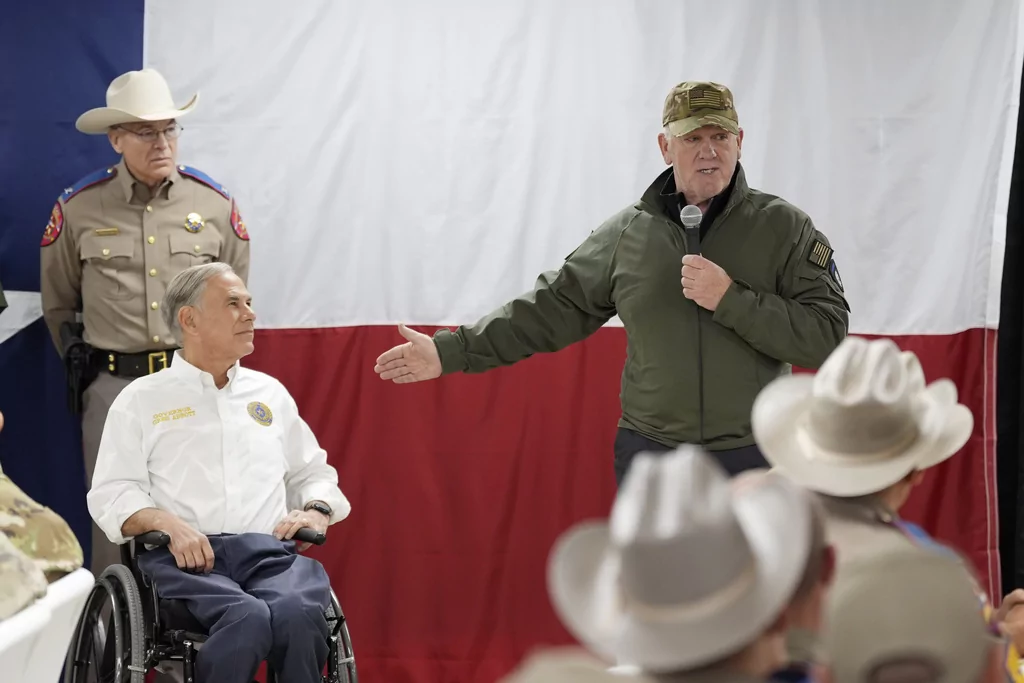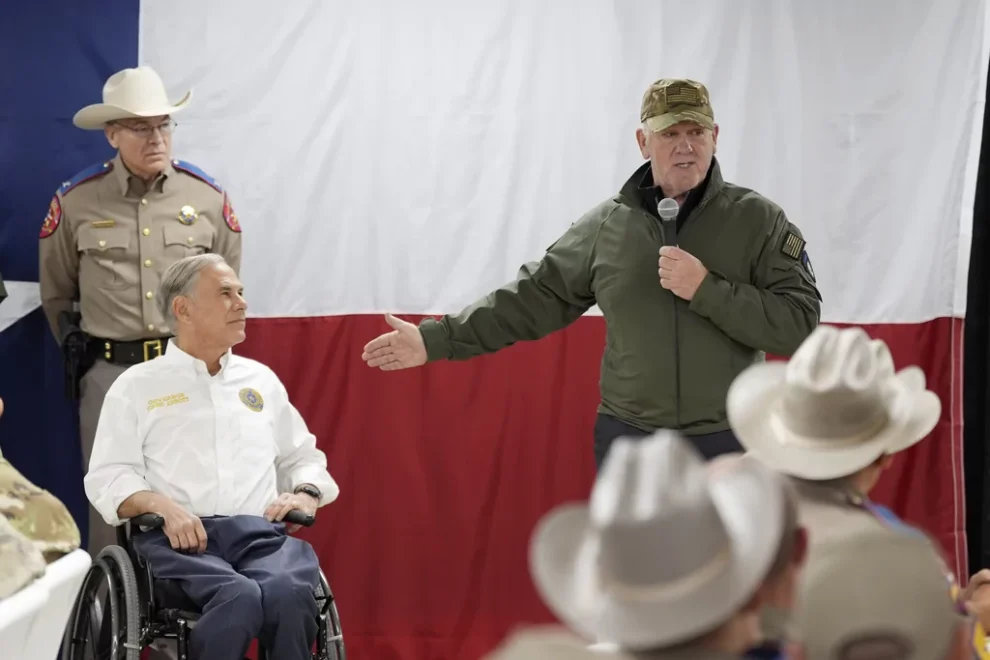President-elect Donald Trump has made multiple promises to carry out mass deportations, and he could use Texas’s “Operation Line Star” as a road map for putting his plans into action.

Trump’s pick for border czar, Tom Homan, met with Gov. Greg Abbott (R-TX) in two border cities last week to discuss the state’s border operations and visit National Guard troops. Also in the last few weeks, Texas has offered roughly 1,400 acres, and plans to offer more, to the federal government for the construction of deportation facilities.
“Operation Lone Star” has been operating for more than three years. More than $11 billion have been spent to create a jail system for migrants with low-level state misdemeanor charges as well as to deploy thousands of state troopers and National Guard troops to border towns to enforce the arrests.
The system has not greatly affected the flow of migration and has faced numerous civil rights abuse charges, but nonetheless, Operation Lone Star could be supercharged if Trump follows through on his promise of using local police and military forces to enforce his deportation policies.
“This is a model we can take across the country,” Homan told troops last Tuesday, according to the Wall Street Journal.
Here’s how Texas’s Operation Lone Star could come to influence and affect Trump’s deportation plan.
Detention facilities on state land
The land Texas offered to the federal government was purchased for $3.8 million and falls along the Rio Grande in Texas’s rural Starr County. While the land has been proposed as a base for deportation facilities, it lies within the river’s floodplain, promising development difficulties.
Texas Land Commissioner Dawn Buckingham said on Tuesday that her office has listed out other property options to present to the Trump administration.
“Our message to the Trump administration is ‘we’re here, we’re interested,’” she said. “Of course, we own property all over the state, so we’re ready to sit down with them and talk about what could be strategic.”
Trump’s spokeswoman Karoline Leavitt sidestepped questions about collaboration with the Texas state government but told the newspaper: “President Trump will marshal every lever of power to secure the border, protect their communities, and launch the largest mass deportation operation of illegal immigrant criminals in history.”
Legal agreements
Operation Lone Star hasn’t had a clear path forward on the legal front. The steps that officials have taken to slow the flow of illegal immigration, including putting up barbed wire along border crossings, have drawn multiple civil rights lawsuits.
The razor wire that has been placed around the Rio Grande has created conflict between the state and the federal government as Border Patrol cannot easily access the river to perform rescues or arrests.
However, with Trump in the White House rather than President Joe Biden, there is a greater likelihood that tighter immigration restrictions won’t be met with legal hurdles.
At a January rally, Trump said, “When I’m president, instead of sending Texas a restraining order, I’ll send them reinforcements.” The statement led many to believe that the many lawsuits against Texas’s immigration policies will disappear as soon as Trump is back in office.
Leaning on military forces
Trump has been vocal about his desire to call in both military forces and local law enforcement to carry out his deportation plans. It’s not unusual for the National Guard to be called to serve at the border, but Operation Lone Star has turned the National Guard’s assignments into a more permanent role.
Deportations using military assets were referenced by Tom Fitton, the president of Judicial Watch, on Truth Social, where he wrote the Trump administration would “declare a national emergency and will use military assets to reverse the Biden invasion through a mass deportation program.”
In response to Fitton’s post, Trump commented, “True!!!”
CLICK HERE TO READ MORE FROM THE WASHINGTON EXAMINER
Federal money for cooperation
In the same way Texas’s state government has handed out grants to communities that find themselves under border-related states of emergency, the Trump administration could put a similar program in place at the federal level.
Trump could also rely on declaring illegal immigration a national emergency as a means to ease his path to carrying out mass deportations. That decision would follow what Texas did in 2021, when the state declared a national emergency and started sending state funds to communities that cooperated with its efforts.
























